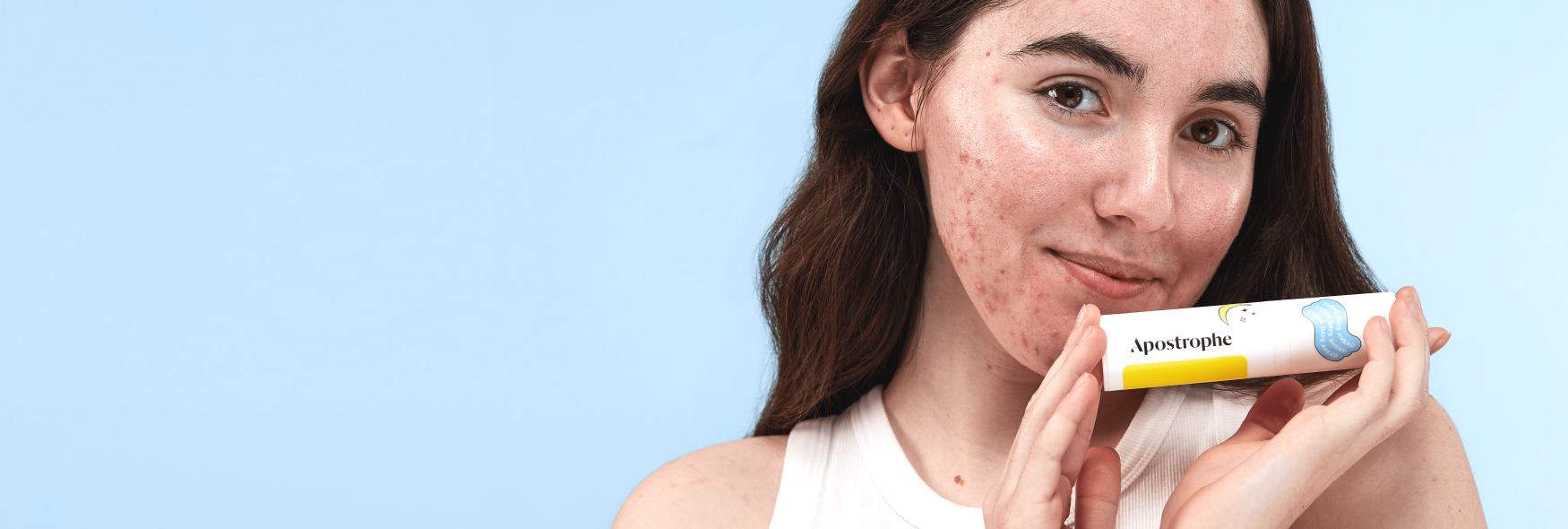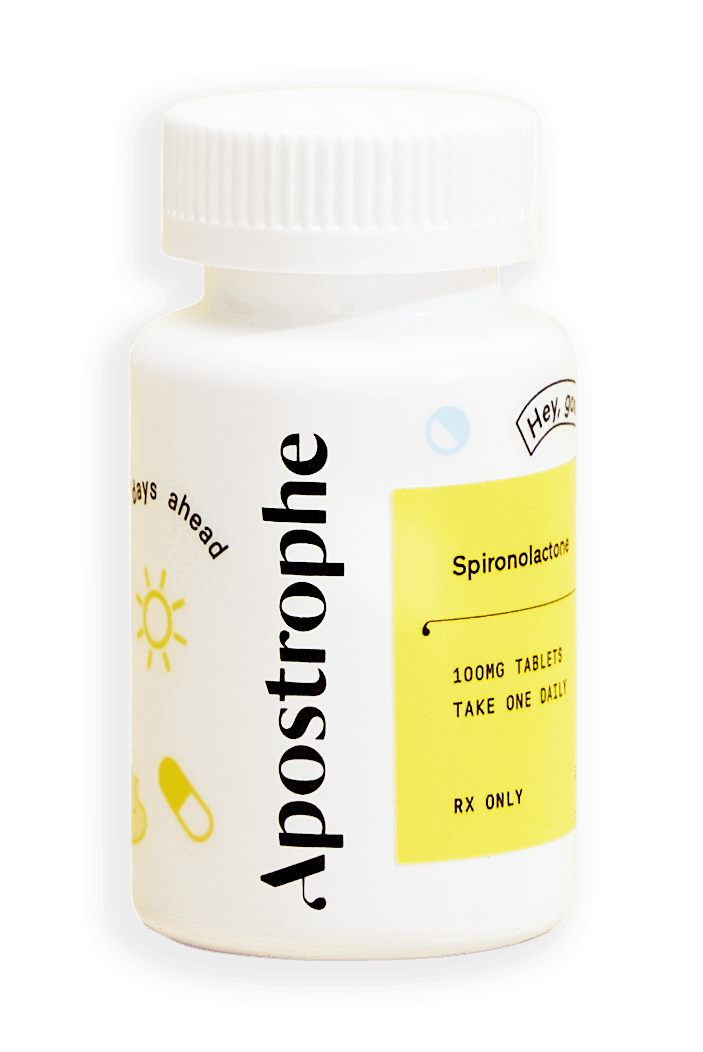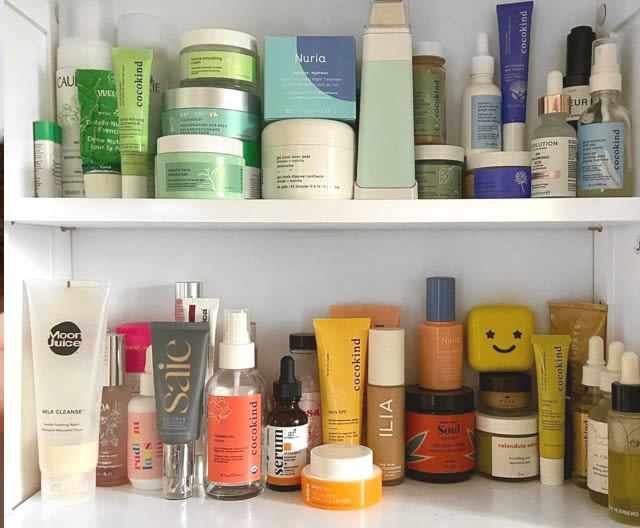General
Severe acne: types and treatment options


SHARE
General
Severe acne: types and treatment options
Medically reviewed by Mary Lucas, RN
Written by Apostrophe Team
Last updated 5/1/2023
If you’re searching the web for information on severe acne, you’re clearly tired of dealing with skin problems. Acne of all types is disruptive and troubling, but when it’s severe, it can impact your quality of life.
This isn’t one or two pimples — severe acne is the kind that makes you want to hide away from the world. It hurts, can make you feel self-conscious, and can scar you for life.
At some point, your struggles with acne should lead to a physician. And sometimes that doesn’t happen until you’ve tried every single drug store solution, every cleanser, and skincare cream. But serious acne sometimes requires the big guns such as prescription acne treatment.
What Is Acne, Exactly?
Sure, you know what acne is. It’s pimples. But do you know what’s happening beneath your skin? Acne vulgaris may be the most common skin condition, but that doesn’t mean everyone knows what they need to know about it.
Acne is caused by abnormal dead skin cell build-up, which obstructs or “clogs” your pores, making it impossible for sebum (your skin’s natural oils) to get onto the surface of your skin. The clogged pore is further irritated by the bacteria Propionibacterium acnes (now called Cutibacterium acnes), which makes it inflamed and irritated. The result of all of this: A pimple. And when this happens consistently, it’s safe to say you have acne.
Not all pimples are alike — if you’ve had your share, you know this. Some, such as open comedones, better known as blackheads, are painless and mainly just an aesthetic concern. Others, such as pustules, nodules, and cysts can be large, painful, and lead to acne scars.
Pustules, for example, are topped with pus and are typically red around their base. Nodules are hard, large, and painful, and come from deep beneath the surface of the skin. Cysts are deep, painful pimples that are filled with pus.
What Qualifies as “Severe” Acne?
We’ve all struggled with pimples at some point. (If you haven’t, the rest of the world hates you). But what makes your acne “severe”?
One rating scale for acne, the Adult Female Acne Scoring Tool, rates severe acne as acne covering the entire face with several types of pimples, and rare nodules. Very severe acne, according to this scale, is very inflammatory acne, including the deep and painful nodules. Severe acne is most likely to lead to scarring, so isn’t only a concern now while you’re struggling with pimples, but long into the future.
Severe Acne Causes
At a real foundational level, acne is caused by androgens, or male sex hormones. This is why acne peaks in adolescence and why it’s common among women with polycystic ovarian syndrome (PCOS).
But several factors may increase your risks of suffering from acne, particularly into adulthood.
Certain medications. Medications such as benzodiazepines, lithium, cyclosporin, serotonin uptake inhibitors, progestin birth control, and vitamin B complexes may be associated with acne development.
Smoking. Tobacco use has a strong connection to acne in adult women. It even has a name: “smoker’s face,” and is characterized by comedones and some inflammatory pimples.
Hormone (endocrine) conditions. Certain hormonal imbalances or conditions can increase your risk of acne, particularly those that result in excess androgens. These may include PCOS and tumors on the ovaries, adrenal glands, and pituitary gland.
Menstrual cycle. In addition to androgens, acne can be triggered by fluctuating hormones in the menstrual cycle. Acne generally worsens in women around their period, but also during perimenopause, pregnancy, and menopause.
Stress. Stress and lack of sleep are known risk factors for acne, and this risk factor is one of few within your control.
Genetics. If someone in your family has severe acne, there’s a greater chance you will, too.
Treatment for Severe Acne
One of the primary considerations your doctor or dermatologist will have in treating your acne is how severe it is. Someone who gets a few pimples each month will not be given the same treatment regimen as someone with severe, ongoing acne troubles.
Topical treatments
Topical treatments are generally the first-line defense against acne. Your physician may recommend over-the-counter solutions like benzoyl peroxide or prescription medications like the retinoid tretinoin. However, these are generally not enough for severe acne. They’re most often used in conjunction with oral medications.
Systemic treatments, that treat your acne from the inside-out, are often prescribed for severe acne cases. They can include any number of prescription solutions.
Antibiotics. Antibiotics such as tetracyclines and doxycycline work to control the acne bacteria that causes your lesions. Antibiotic resistance is a concern with these, so they generally are not used long-term.
Oral contraceptives. Many women have success treating their severe acne with birth control pills. Oral contraceptives help regulate the hormonal swings that can lead to breakouts.
Androgen-blockers. If excess androgens are the suspected cause of your acne — as in the case of PCOS — your doctor may recommend an androgen blocker such as spironolactone.
Physical treatments
Visiting a dermatologist to undergo hands-on treatment is another option. If you’ve ever seen pimple-popping videos on the internet, this is one of the physical treatments we’re referring to.
Others include acne extraction and injections of corticosteroids into acne nodules and cysts. But in addition to removing lesions, a dermatologist may recommend phototherapy.
If you’re dealing with severe acne, we highly recommend consulting with a dermatology provider to ensure you’re getting expert care for your skin. Get started on your derm visit through Apostrophe today.
References
Shop this post

Oral Spironolactone
Like what you just read? Sign up for our email list to get the scoop on skincare science delivered straight to your inbox.

General
What is milia?
What is milia? Today, we’re jumping into one type of bump that you may have heard about most commonly in infants — milia.
Read More
General
Best moisturizer for acne-prone skin
If you have combination acne-prone skin, figuring out which moisturizer is best for your skin might be tough. In this guide, we break down the best moisturizer for combination, acne-prone skin.
Read More
General
How to build a face care routine
As you get into skincare, it might seem overwhelming, especially trying to figure out the order you're supposed to apply products in. Below, we detail how to build a face care routine for your skin!
Read More
